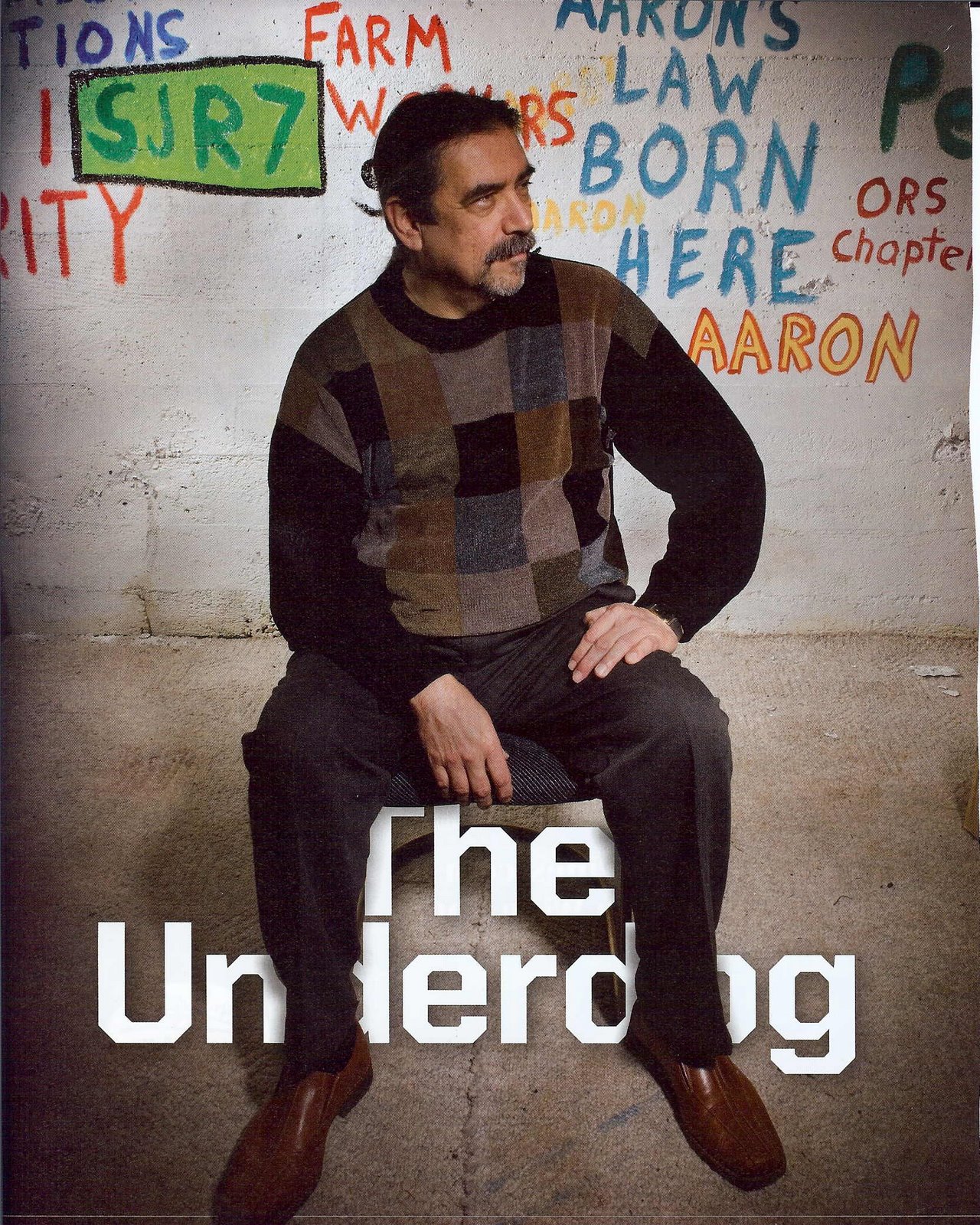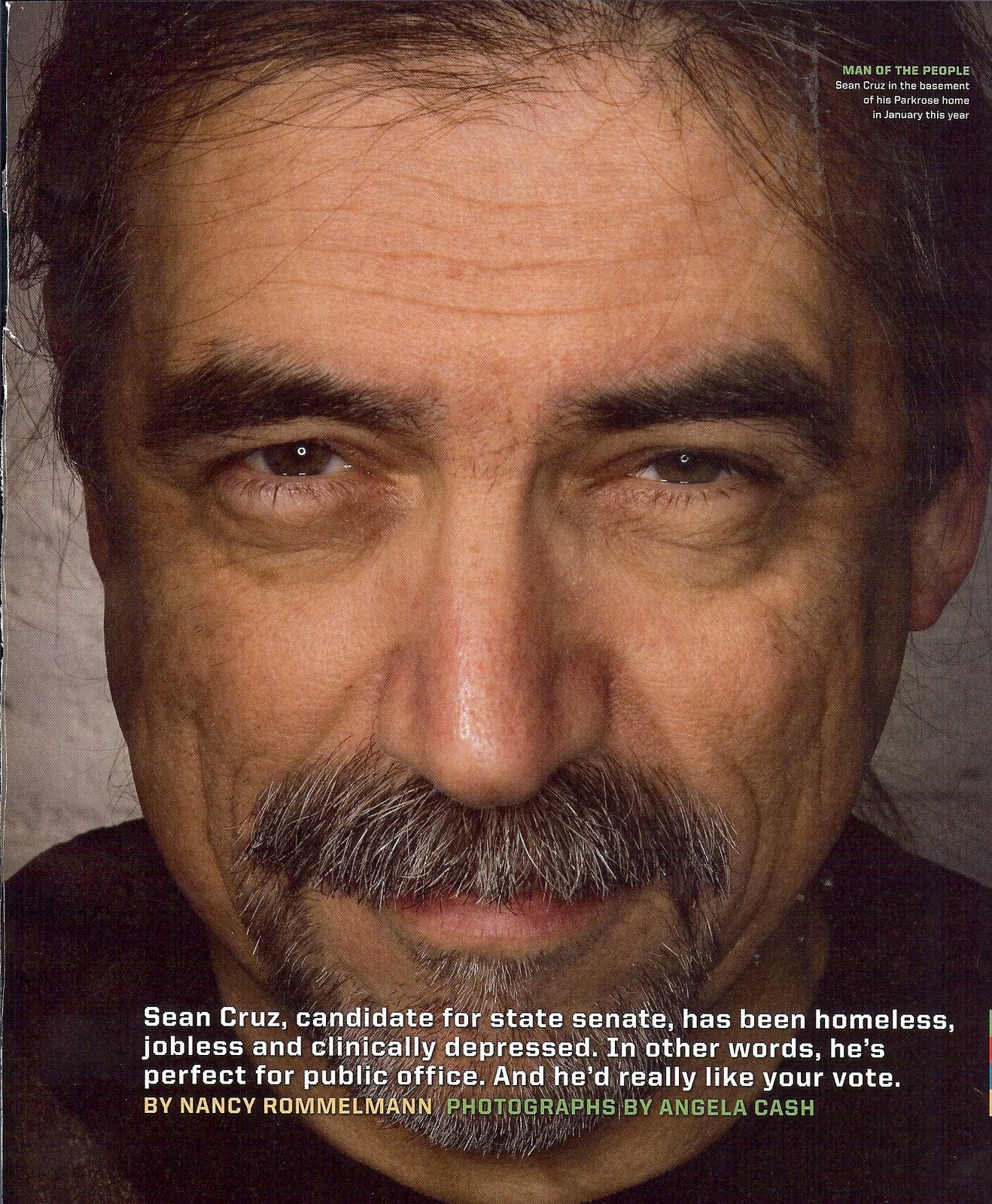The committee seeking to honor Cesar Chavez in Portland has already won its victory, a point that appears to be lost in the brouhaha about renaming Interstate.
Try looking at it this way:
Three committee members walked into the Council Chamber of a major American city and convinced the Mayor and the City Council to vote unanimously in support of their concept, to honor their hero in a significant, permanent way.
That is a huge victory, and the list of people who have failed to achieve noble objectives like this is very long.
This Committee won the hearts and minds of five public officials to rename a major public thoroughfare after their hero, Cesar Chavez.
This alone is a remarkable accomplishment, and this is where the focus should be now as a next step, opening the stage for an open public process.
I am making this point to underscore the extent of the victory the Committee has won—there should be celebration and vivas, and yet there is bitterness.
Even for the winners the taste of victory is sour.
There are many Portlanders of good will, who have a genuine respect for the accomplishments and character of Cesar Chavez, who want to see him honored in Portland in a permanent, physical, public way, but who are saddened by this state of affairs.
These Portlanders come in all colors, shapes, sizes, racial and ethnic groups, and of all ages….
Many Portlanders would welcome a Cesar Chavez honoring in their own neighborhood, but have no place in this process.
The choice is Interstate or nothing. Bitterness either way.
Those who would want to see this great man honored in their neighborhood are lumped in equally with those who say “not in my neighborhood.”
That is completely unfair.
The question of renaming Interstate has become a litmus test for some, as to whether you are a good person or a bad person, loyal or disloyal, respectful or disrespectful, bigoted or not.
Where is the spirit of Cesar Chavez in that? How does it feed one hungry child?
Honestly, my mind is on other things these days, my priorities elsewhere.
I have just returned from several days in New Orleans, shocked at the extent of human suffering there, the vast emptiness of the city, the loneliness of the people struggling to achieve a tiny slice of what we all take for granted marks every square foot of what you see.
Those people down there feel forgotten by the rest of us, and the truth is exactly that: we have mostly moved on to other things.
The other thing on my mind is the occupation of Iraq, going on five years now for me and my family, four years since my sons were ordered to deploy the first time.
I’d like to see a small portion of the outrage that the Interstate renaming issue has generated directed instead to the news that 1000 more soldiers from the Northwest were just notified that they need to prepare for another deployment to continue the occupation of Iraq.
The key words here are another deployment. I’d like to see some concern, some outrage about the justice of that, sending the same people over and over again.
I share this sentiment with much of the rest of the small fraction of Americans who have to personally worry about IEDs and amputations, PTSD and Traumatic Brain Injury, the signature injury of this war.
For us, these worries run 24-7, extend to infinity, financial ruin and inadequate health care in the foreseeable future.
I tell you, my heart hurts.
I feel regrets for my earlier statement as to this seriously flawed process. I have friends who are disappointed in me, and this disturbs my sleep. I wish that I had communicated my earlier message differently, more clearly, less personally, and with a different tone.
These are honest regrets, but at the same time I do not believe it would have made much difference, there is so much polarization.
For the record, I am not new to finding ways to honor Cesar Chavez.
Shortly after moving into Portland in 1996, I wrote a series of articles regarding the work of Cesar Chavez and in support of Oregon farm workers. I drove to PCUN in Woodburn to hear Dolores Huerta speak and wrote about that, too.
These articles were published in The Portland Observador and El Pulso Hispano in 1996 and 1997. Si se puede!
During my term on the KBOO 90.7 FM Board of Directors, where I also served on the Programming Committee, we made significant changes to the station’s schedule, creating a six-hour block of Latino radio that is still running today, keeping the spirit of Cesar Chavez on the air. Si se puede!
Eight years ago, in 1999, the KBOO Board of Directors unanimously approved my motion declaring March 31, Cesar Chavez’ birthday, a national holiday. Si se puede!
With a unanimous vote, the same year that Texas declared Cesar’s birthday an official state holiday, KBOO was leading the honoring in Portland.
That was community radio at its best, and I am double-underscoring the word “community.” The community came together on that day. A great moment in Portland history, still sadly underappreciated.
In 2003, I helped draft a Senate bill that would give Oregon farm workers the right to meal and rest breaks, the same meal and rest breaks that everyone takes for granted. Si se puede!
The bill didn’t receive a hearing, died in Senate committee. However, Si se puede!
We then worked with the workgroup created by Bureau of Labor and Industries Commissioner Dan Gardner through the 2003 interim to achieve this goal by administrative action. Si se puede!
In February 2004, Commissioner Gardner issued the rule, Si se puede!, and Oregon’s farm workers now and forever have the right to meal and rest breaks, just like everyone else out there.
I was also present in the chamber on March 31, 2005, the anniversary of Cesar Chavez’ birthday, when the Oregon Senate passed Senate Resolution 1, “Encouraging Oregonians to undertake a day of voluntary service to honor Cesar Chavez.”
SR1 was co-authored by Senate President Peter Courtney, Senate Majority Leader Kate Brown and Senate Republican Leader Ted Ferrioli.
It would be helpful, I believe, at this point, for all interested parties to take a moment and read this brief but powerful document.
Here’s the link:
http://www.leg.state.or.us/05reg/measpdf/sr1.dir/sr0001.en.pdf
That is what the spirit of Cesar Chavez looks like to me.
Still, some are angry with me….Interstate or nothing, cabron.
I have wanted to see Killingsworth renamed to honor Cesar Chavez for years, and I’m saddened to see the opportunity pass by.
I see renaming Killingsworth as an important step in revitalizing neighborhoods across North, Northeast and Southeast Portland, linked by the #72 bus line.
I live out here, and I’m saying bienvenidos Cesar, to my neighborhood.
Granted, there may not be the votes for honoring Cesar Chavez in East Portland, and I’m willing to concede that, but there ought to be a place for alternate ideas in the process.
No one is going to win the gold medal for tolerance in this scrap, not this way.
The #72 could be a key factor in upgrading the neighborhoods where I spend most of my time, connecting the Clackamas Town Center, 82nd Avenue of Roses, Marshall High, Portland Community College Southeast Campus, the 82nd Avenue Max station, Madison High, Cesar E. Chavez Boulevard (currently Killingsworth), NE 42nd Avenue, the Alberta Arts District, Martin Luther King, Jr. Boulevard, the intersection of MLK and CEC Boulevards (currently MLK and Killingsworth), back to Cesar E. Chavez Boulevard, Jefferson High, Portland Community College Cascade Campus, I-5, the Cesar E. Chavez/Interstate (currently Killingsworth) Max station, and deep into North Portland, all linked like jewels on a chain.
The unifying potential of the humble #72 line is enormous.
A lot of redevelopment money has gone into the Interstate corridor in recent years, and people on the East side are saying, “Hey, what about us?”
It would have been good to give people out here on the East side of Portland the opportunity to have a discussion, perhaps survey the people who live and work, attend class, own businesses or travel the route of the #72, the actual stakeholders in the community.
If you can get that group of people to buy in, then who is the loser?
Who knows? Maybe the East side community would want to compete for where this public honoring of a great American hero should take place, leveraging the public transportation and economic development aspects.
The Committee focused on renaming Interstate won support from the City Council, which really wants to help them, but this failure to recognize the victory won is contributing to the rancor, like getting your hand bitten.
Renaming Interstate won't cost me a nickle, just people I don't know. I get over there maybe twice a month, maybe less. I ride the #72, do business along the route much more often.
I’m going to put my attention towards New Orleans and the Gulf Coast for the next little while, try to make some kind of difference for someone there.
Right now, Cesar’s farm workers are facing real threats to their safety, their security, and their families on multiple fronts, and those issues are also on my mind.
Families are being broken up and separated by the nation’s broken immigration laws. Latino children who are American citizens by birth are forced to live in other countries.
Where is the outrage?
Farmers and other employers need a reliable work force. The experience of American farmers tells them that no one is more reliable than their immigrant workers.
What is more valuable to a farmer than an employee who finds no shame in working the soil, who is not demeaned by farm work?
Cesar Chavez understood the quiet dignity of farm work, the noble profile of a working man or woman standing in the field at dawn, the fulsome glory of a handful of black earth. Viva Cesar Chavez!
The farmer wants workers who value the land and what it can produce as much as he does.
The farmer does not want to risk her crop on people forced into her field by lack of opportunity in the city or as the result of a jail sentence, as some would suggest.
Nevertheless, neither workers nor employers are secure in the clamor, and I want to put some time and energy into this, leave honoring Cesar Chavez to someone else.
The American people need to figure out that those who work in the fields and the kitchens in this country are the same people who care for our elderly and infirm for us.
Sooner or later, they will probably be caring for you!
You want someone reliable and dependable for humble work like this. You also want to make sure that you have enough of them. Si se puede!
The anti-immigrant voices begrudge the foreign workers, the migrant agricultural labor force, their children, their families, their access to education, to health care and decent housing.
I’m going to take a stand in that fight over there.
Lastly, I’m going to wish that all I had to worry about was someone calling me or my son names, no IEDs, snipers or mass killings haunting my dreams any more.
To that, to the catcalls and name-calling, I say “Bring it on, hombre.” I won’t let it divert me from what really matters.
Like water rolling off a duck to me….
I’m a Mexican-American, a Chicano, proud of it, proud of my people, born and raised in a small Sacramento Valley farm community, and I say bienvenidos a Cesar Chavez, welcome to my neighborhood, to my East Portland neighborhood.
Sean Cruz
October 21, 2007
Portland, Oregon
Subscribe to:
Post Comments (Atom)






No comments:
Post a Comment